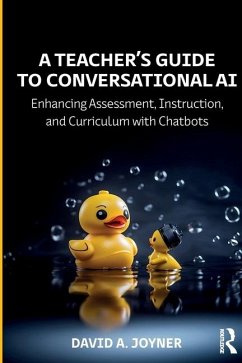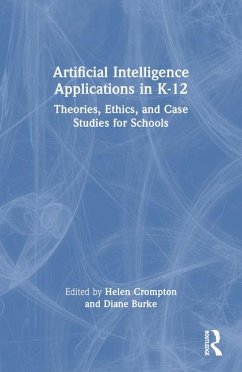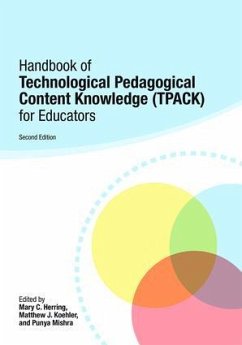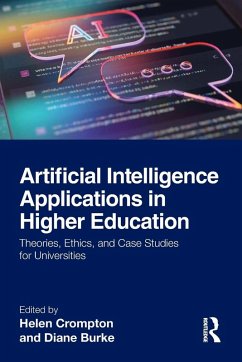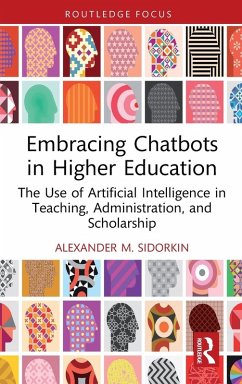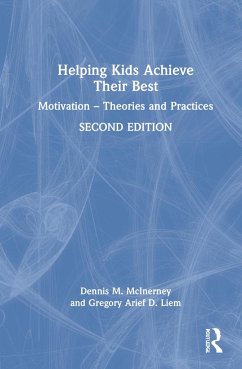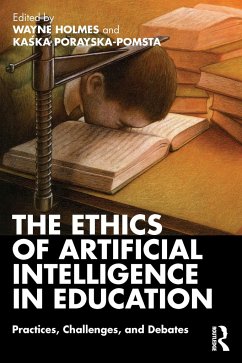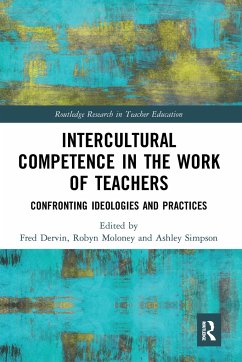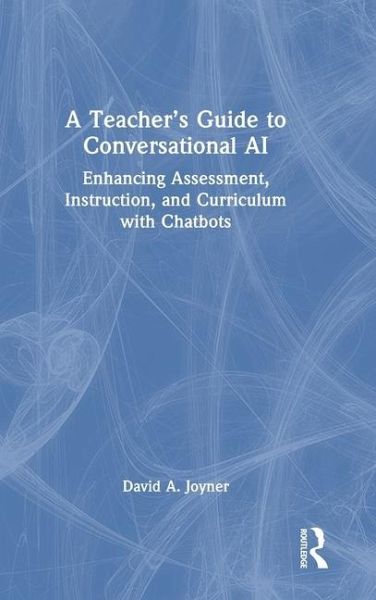
A Teacher's Guide to Conversational AI
Enhancing Assessment, Instruction, and Curriculum with Chatbots
Versandkostenfrei!
Versandfertig in 6-10 Tagen
154,99 €
inkl. MwSt.
Weitere Ausgaben:

PAYBACK Punkte
77 °P sammeln!
A Teacher's Guide to Conversational AI explores the practical role that language-based artificial intelligence tools play in classroom teaching, learning experiences, and student assessment. Today's educators are well aware that conversational and generative AI-chatbots, intelligent tutoring systems, large language models, and more-represent a complex new factor in teaching and learning. This introductory primer offers comprehensive, novice-friendly guidance into the challenges and opportunities of incorporating AI into K-12 schools and college classes in ways that are appropriate, nourishing ...
A Teacher's Guide to Conversational AI explores the practical role that language-based artificial intelligence tools play in classroom teaching, learning experiences, and student assessment. Today's educators are well aware that conversational and generative AI-chatbots, intelligent tutoring systems, large language models, and more-represent a complex new factor in teaching and learning. This introductory primer offers comprehensive, novice-friendly guidance into the challenges and opportunities of incorporating AI into K-12 schools and college classes in ways that are appropriate, nourishing to students, and outcomes-driven.
Opening with an informative overview of the foundational properties, key terminology, and ethical considerations of these tools, the book offers a coherent and realistic vision of classrooms that are enhanced, rather than stymied, by AI systems. This includes strategies for:
· designing assessments that are conducive to students' beneficial use of AI while mitigating overreliance or dishonesty;
· using AI to generate lesson examples for student critique or custom content that reinforces course principles;
· leveraging chatbots as a co-instructor or a tutor, a guide during student-driven learning, a virtual debate or brainstorming partner, and a design project; and
· creating course content, lesson plans and activities, expanded language and accessibility options, and beyond.
Through the depth of understanding and applied approach provided in these chapters, teachers and leaders in training and in service, alongside private tutors, college instructors, and other educators, will be better prepared to future-proof their efforts to serve new generations of learners.
Opening with an informative overview of the foundational properties, key terminology, and ethical considerations of these tools, the book offers a coherent and realistic vision of classrooms that are enhanced, rather than stymied, by AI systems. This includes strategies for:
· designing assessments that are conducive to students' beneficial use of AI while mitigating overreliance or dishonesty;
· using AI to generate lesson examples for student critique or custom content that reinforces course principles;
· leveraging chatbots as a co-instructor or a tutor, a guide during student-driven learning, a virtual debate or brainstorming partner, and a design project; and
· creating course content, lesson plans and activities, expanded language and accessibility options, and beyond.
Through the depth of understanding and applied approach provided in these chapters, teachers and leaders in training and in service, alongside private tutors, college instructors, and other educators, will be better prepared to future-proof their efforts to serve new generations of learners.





